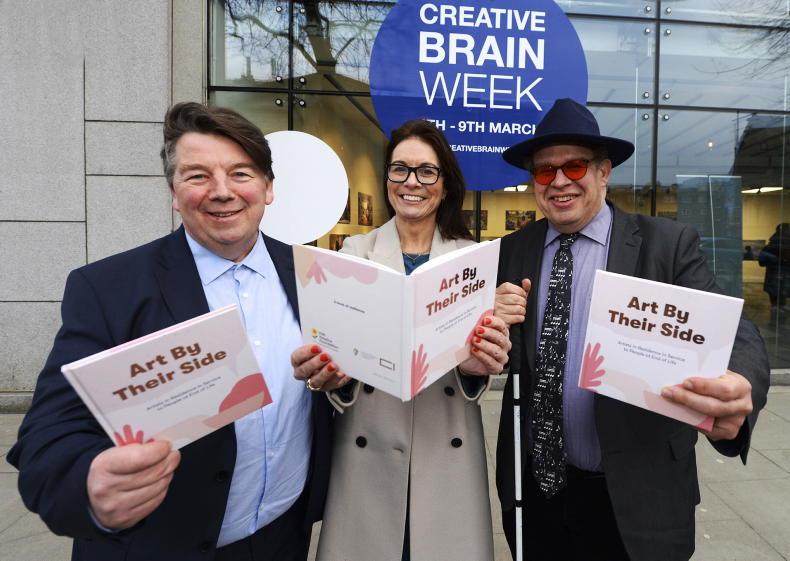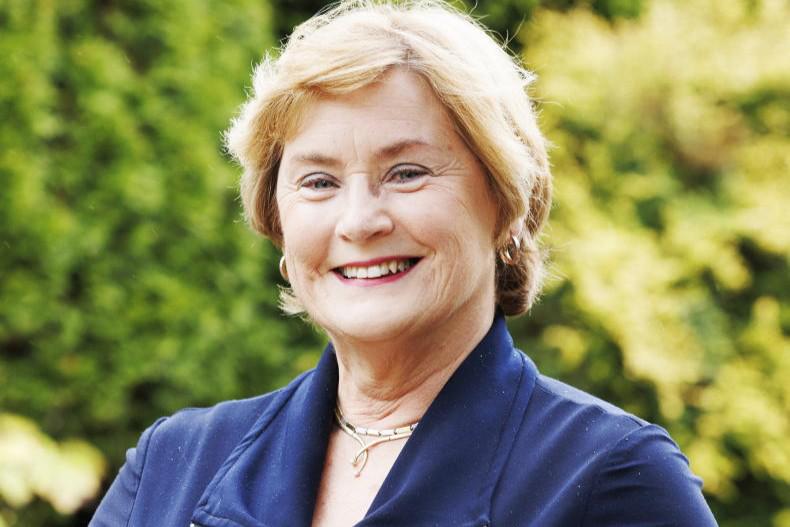Menopause Hub: ‘floodgates could open for legal actions against employers’
Irish employers risk being sued for discrimination if they fail to make their workplaces menopause friendly, Loretta Dignam, founder of the Menopause Hub says.
This comes as new UK guidelines state that severe menopausal symptoms can now be considered a disability. That’s if they are having a ‘long-term and substantial impact’ on an employee’s performance.
Loretta expects similar guidelines to be introduced in this country soon. “The latest development in Britain could open the floodgates in this country for a raft of fresh legal actions, based on gender, age and disability discrimination, raised by women in their 40s and 50s,” she says.
She is advocating simple adjustments like more training for HR staff and greater flexibility for employees going through menopause.
Research by the Menopause Hub found that 33% of Irish women had seriously considered quitting their jobs because of the impact that menopausal symptoms such as anxiety and depression, brain fog and insomnia had on their performance at work.
Loretta Dignam has recently launched the Menopause Hub App that provides information and allows users to monitor symptoms.
•themenopausehub.ie
Mobile x-ray units will now go to nursing homes and community nursing units nationwide, a move that will reduce the need for older people to attend Emergency Departments. The service was first launched on a pilot basis in 2022 and has been rolled out, since 1 March, on a phased basis. 1,000 GPs have already made referrals across more than 350 nursing homes and community nursing units.
If a nursing home resident has a fall or requires a chest x-ray the diagnostic team will arrive on-site, and an x-ray exam will take place in the resident’s room. A report will reach the referring doctor within four hours. Patients don’t need a medical card to avail of this service.
There has been a significant increase in sexually transmitted diseases (STIs) in Ireland, according to the Health Protection Surveillance Centre (HPSC’s) latest report. This is similar to the experience of other European countries.
The STI notification rate in 2023 increased by 31% compared to 2022 (from 346 to 452 per 100,000 population). The largest increases were seen in gonorrhoea (+68%) and chlamydia (+25%). The most common STIs reported in 2023 were chlamydia (n=13,711) and gonorrhoea (n=6,824). Groups most affected by STIs were young people (aged 15 to 24 years), and gay bisexual and other men who have sex with men (gbMSM). A total of 45% of all STIs notified in 2023 were in people aged less than 25 years.
While STIs are usually easily treatable, some can cause serious health issues such as infertility and pelvic inflammatory disease. Many people are unaware that they have an STI as they don’t have symptoms.
There are steps that everyone can take to reduce their risk of contracting STIs, the HPSC says. This is via condom use, reducing further spread by getting tested promptly, getting appropriate treatment and informing partners so they can be tested too.
Free supports are available from the HSE and are promoted through the Sexual Wellbeing and Man2Man campaigns. Support includes free condoms and free home STI testing kits.
•sexualwellbeing.ie
Trinity team – cause of brain fog linked with Long Covid
Researchers in Trinity College have now shown that leaky blood vessels in the human brain, in tandem with a hyperactive immune system, may be the key drivers of the brain fog associated with Long Covid.
This is critically important, study lead Professor Matthew Campbell said, as understanding the underlying cause of these conditions will allow researchers to develop targeted therapies for patients in the future.
Art has healing powers. That’s what’s highlighted in the Irish Hospice Foundation’ new book Art by Their Side. The Foundation partnered with hospitals to integrate artists into care settings in 2023 with the aim of providing patients, families and staff with a unique outlet for self-expression and to foster compassion in the acute healthcare system.
The new book features interviews with participants and showcases the creative work that emerged from the residencies, demonstrating the profound impact of art on end-of-life care and that people can live well right to the end.
Artists Caroline Schofield and Kevin Toolis worked at St Luke’s General Hospital Kilkenny and University Hospital Limerick respectively. Dr Rory McGovern, consultant geriatrician at St Luke’s praised the project saying: “I’ve seen Caroline work with patients with various medical and psychological issues. I’ve seen them engage with her and then suddenly, smiling and finding themselves as people again.”

Irish-Hospice-Foundation. \ Paul-Sherwood-Photography
Gaming could be good for your memory?
A new study has found that regular gamers performed better on tasks that involve attention and memory. The 88 young adults who participated in the research at the Leor Esports Science Research Lab at the University of Limerick (UL) were given three tests; a reaction time test, a memory test and a maze-based activity to assess visuospatial memory. The group of gamers completed the tasks quicker than non-gamers.
“The regular playing of video games is often criticised and seen as unhealthy, but our research shows that gamers may enjoy some cognitive benefits over the wider population particularly relating to attentiveness and memory,” said one of the authors, Dr Adam Toto of UL.
Study finds promising findings: coffee drinkers have much lower risk of bowel cancer recurrence
People with bowel cancer who drink two to four cups of coffee a day are much less likely to see their disease come back, a study of 1,719 bowel cancer patients by Dutch and British researchers has shown.
Patients who had at least five cups a day were 32% less likely than those who drank fewer than two cups to see their bowel cancer return, according to the research funded by the World Cancer Research
Fund.
The study is the latest to show that coffee reduces cancer risk. Co-author Professor Marc Gunter stated that: “coffee contains hundreds of biologically active compounds which have antioxidative properties and also lowers inflammation and insulin levels.
“However, we need more research to go more deeply into the biology of why coffee might have such an effect on bowel cancer prognosis and survival,” he added.
This is a turnaround from the WHO 2016 classification of coffee as ‘possibly carcinogenic’.
• Campaigners gathered recently to mark the 20th anniversary of Ireland’s workplace smoking ban. They credit it with saving more than 3,700 lives in less than four years after its introduction. Tánaiste Micheál Martin, who pushed through the legislation as Minister for Health in 2004, was joined at Government buildings by representatives of the Irish Heart Foundation, its ASH Council and other organisations involved in its initiation.
Read more
Meet the Maker: Bianca Divito
Katherine's Country: 'will it ever stop raining?'
Menopause Hub: ‘floodgates could open for legal actions against employers’
Irish employers risk being sued for discrimination if they fail to make their workplaces menopause friendly, Loretta Dignam, founder of the Menopause Hub says.
This comes as new UK guidelines state that severe menopausal symptoms can now be considered a disability. That’s if they are having a ‘long-term and substantial impact’ on an employee’s performance.
Loretta expects similar guidelines to be introduced in this country soon. “The latest development in Britain could open the floodgates in this country for a raft of fresh legal actions, based on gender, age and disability discrimination, raised by women in their 40s and 50s,” she says.
She is advocating simple adjustments like more training for HR staff and greater flexibility for employees going through menopause.
Research by the Menopause Hub found that 33% of Irish women had seriously considered quitting their jobs because of the impact that menopausal symptoms such as anxiety and depression, brain fog and insomnia had on their performance at work.
Loretta Dignam has recently launched the Menopause Hub App that provides information and allows users to monitor symptoms.
•themenopausehub.ie
Mobile x-ray units will now go to nursing homes and community nursing units nationwide, a move that will reduce the need for older people to attend Emergency Departments. The service was first launched on a pilot basis in 2022 and has been rolled out, since 1 March, on a phased basis. 1,000 GPs have already made referrals across more than 350 nursing homes and community nursing units.
If a nursing home resident has a fall or requires a chest x-ray the diagnostic team will arrive on-site, and an x-ray exam will take place in the resident’s room. A report will reach the referring doctor within four hours. Patients don’t need a medical card to avail of this service.
There has been a significant increase in sexually transmitted diseases (STIs) in Ireland, according to the Health Protection Surveillance Centre (HPSC’s) latest report. This is similar to the experience of other European countries.
The STI notification rate in 2023 increased by 31% compared to 2022 (from 346 to 452 per 100,000 population). The largest increases were seen in gonorrhoea (+68%) and chlamydia (+25%). The most common STIs reported in 2023 were chlamydia (n=13,711) and gonorrhoea (n=6,824). Groups most affected by STIs were young people (aged 15 to 24 years), and gay bisexual and other men who have sex with men (gbMSM). A total of 45% of all STIs notified in 2023 were in people aged less than 25 years.
While STIs are usually easily treatable, some can cause serious health issues such as infertility and pelvic inflammatory disease. Many people are unaware that they have an STI as they don’t have symptoms.
There are steps that everyone can take to reduce their risk of contracting STIs, the HPSC says. This is via condom use, reducing further spread by getting tested promptly, getting appropriate treatment and informing partners so they can be tested too.
Free supports are available from the HSE and are promoted through the Sexual Wellbeing and Man2Man campaigns. Support includes free condoms and free home STI testing kits.
•sexualwellbeing.ie
Trinity team – cause of brain fog linked with Long Covid
Researchers in Trinity College have now shown that leaky blood vessels in the human brain, in tandem with a hyperactive immune system, may be the key drivers of the brain fog associated with Long Covid.
This is critically important, study lead Professor Matthew Campbell said, as understanding the underlying cause of these conditions will allow researchers to develop targeted therapies for patients in the future.
Art has healing powers. That’s what’s highlighted in the Irish Hospice Foundation’ new book Art by Their Side. The Foundation partnered with hospitals to integrate artists into care settings in 2023 with the aim of providing patients, families and staff with a unique outlet for self-expression and to foster compassion in the acute healthcare system.
The new book features interviews with participants and showcases the creative work that emerged from the residencies, demonstrating the profound impact of art on end-of-life care and that people can live well right to the end.
Artists Caroline Schofield and Kevin Toolis worked at St Luke’s General Hospital Kilkenny and University Hospital Limerick respectively. Dr Rory McGovern, consultant geriatrician at St Luke’s praised the project saying: “I’ve seen Caroline work with patients with various medical and psychological issues. I’ve seen them engage with her and then suddenly, smiling and finding themselves as people again.”

Irish-Hospice-Foundation. \ Paul-Sherwood-Photography
Gaming could be good for your memory?
A new study has found that regular gamers performed better on tasks that involve attention and memory. The 88 young adults who participated in the research at the Leor Esports Science Research Lab at the University of Limerick (UL) were given three tests; a reaction time test, a memory test and a maze-based activity to assess visuospatial memory. The group of gamers completed the tasks quicker than non-gamers.
“The regular playing of video games is often criticised and seen as unhealthy, but our research shows that gamers may enjoy some cognitive benefits over the wider population particularly relating to attentiveness and memory,” said one of the authors, Dr Adam Toto of UL.
Study finds promising findings: coffee drinkers have much lower risk of bowel cancer recurrence
People with bowel cancer who drink two to four cups of coffee a day are much less likely to see their disease come back, a study of 1,719 bowel cancer patients by Dutch and British researchers has shown.
Patients who had at least five cups a day were 32% less likely than those who drank fewer than two cups to see their bowel cancer return, according to the research funded by the World Cancer Research
Fund.
The study is the latest to show that coffee reduces cancer risk. Co-author Professor Marc Gunter stated that: “coffee contains hundreds of biologically active compounds which have antioxidative properties and also lowers inflammation and insulin levels.
“However, we need more research to go more deeply into the biology of why coffee might have such an effect on bowel cancer prognosis and survival,” he added.
This is a turnaround from the WHO 2016 classification of coffee as ‘possibly carcinogenic’.
• Campaigners gathered recently to mark the 20th anniversary of Ireland’s workplace smoking ban. They credit it with saving more than 3,700 lives in less than four years after its introduction. Tánaiste Micheál Martin, who pushed through the legislation as Minister for Health in 2004, was joined at Government buildings by representatives of the Irish Heart Foundation, its ASH Council and other organisations involved in its initiation.
Read more
Meet the Maker: Bianca Divito
Katherine's Country: 'will it ever stop raining?'










SHARING OPTIONS